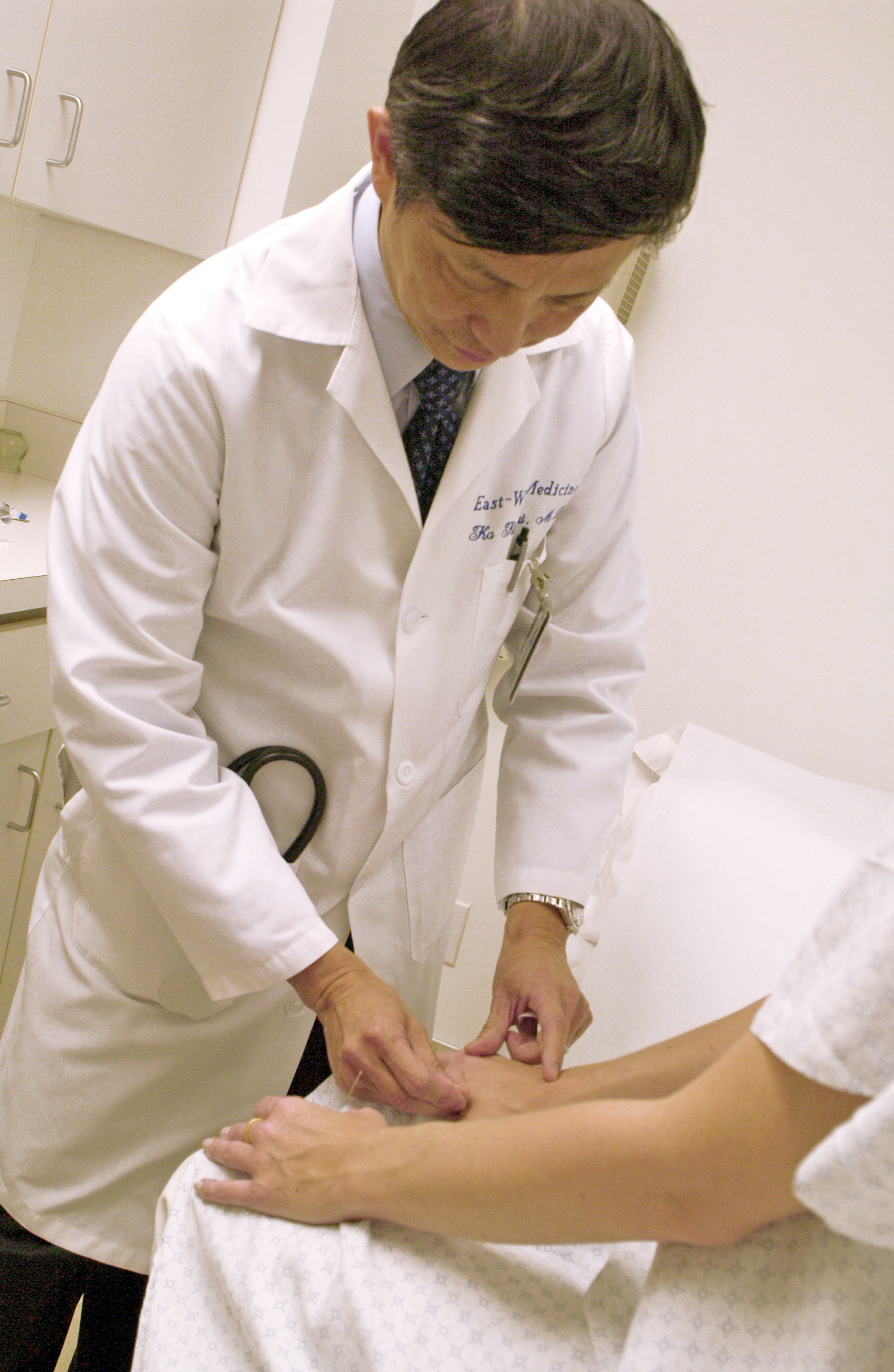Patients’ shouts filtered through the doors of the outpatient clinic and alarmed the people outside.
But Robert Hernandez said the patients he saw while working at an outpatient cardiology clinic in the same corridor where the UCLA Center for East-West Medicine practiced 15 years ago always came out smiling after an intense massage session.
With a hurt shoulder muscle from his previous job at FedEx, Hernandez approached the center’s director, Dr. Ka-Kit Hui. Hernandez could not use his left arm to lift a cup of coffee.
Four treatments of acupuncture and massage later, Hernandez said he was cured “”mdash; and on the path to becoming the massage therapist he is today.
The UCLA Center for East-West Medicine integrates western medicine with eastern approaches from China to create a new, affordable model of care for a country grappling with health care issues, Hui said.
The center draws 1,300 new patients each year and about 12,000 annual patient visits, he said.
Hui said he was intrigued as a UCLA medical student by how acupuncture related to neuroscience. He took 22 years to study how eastern and western medicine compared.
“In 1993, I ventured to establish the center out of an urge to create something exciting and useful,” Hui said. “It was a dream I had back in the early ’70s.”
Hernandez said he continues his treatments at the center for stress relief.
“I feel great today after I left,” Hernandez said. “Some kind of magic takes the stress out.”
This “eastern magic” retains firm roots in science, said rotating resident Kim-Tan Nguyen.
Acupressure, the healing art of pressing certain parts of the body with fingers instead of using acupuncture needles, activates muscles and draws the immune system to those affected areas.
In the eastern cultural sense, it stimulates the flow of energy, or qi.
“It doesn’t take any money to teach patients these acupressure points,” Nguyen said, since expensive medical equipment is not required.
She added that she plans to take what she is learning during her month at the center to Maimonides Medical Center in New York, where she works in emergency medicine.
Nguyen said her patients in New York often suffer from chronic illnesses, and their medications prove harmfully addictive.
But at the center, doctors add holistic, natural approaches to treating symptoms, while also using western knowledge to modify medicinal doses.
The center’s physicians treat patients with the tenet that body and mind are integrated, so social and environmental factors also affect health.
Breathing exercises, diet and fitness advice, and physical or psychotherapy help customize care for the individual.
Hui said patients include people who have found other treatments too expensive, intolerable or ineffective.
Alumni of the center’s training programs, which teach various aspects of integrative medicine, often refer their patients as well.
Through teaching and other avenues, Hui said he hopes to make the center’s style a global model.
The center leads multiple research projects, hosts a national student conference and teaches courses to UCLA medical students and people from various backgrounds.
Hui said he has taught international medical and dental students, law students and students from other disciplines.
UCLA undergraduates can also take an upper division course on integrative east-west medicine with students across the nation during summer session.
